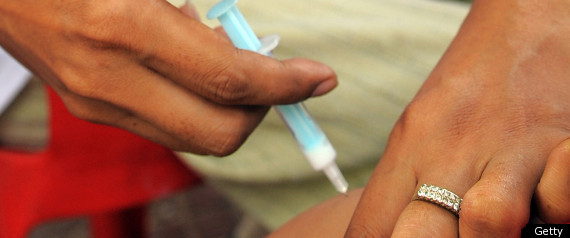By Laura Hirahara
Impunity Watch Reporter, Africa

DJIBOUTI- Djibouti’s government has ousted Democracy International (DI), a United States based election observation and reporting agency, less than a month before the upcoming presidential election on April 8. Foreign minister Mahmoud Ali Youssouf told the Financial Times that DI had failed to maintain political neutrality by supporting opposition parties against the incumbent president Ismael Guelleh. In declaring DI ‘illegal’ earlier this month, Youssouf said the government hopes to avoid the “chaos and upheaval” seen in the protests and demonstrations of other African and Middle East countries in the last several months.
The head of DI’s operation in Djibouti, Chris Hennemeyer, has denied the group was involved in any illegal activity and asserts DI was only trying to help resolve disputes between Guelleh’s administration and opposition groups when protests began in February. That protest, which took place on February 18 of this year, attracted approximately 6,000 anti-government supporters. That rally ended violently when police fired on the crowd, many of whom were throwing rocks. Dozens were injured and at least one protesters was killed. Another opposition rally was scheduled for March 4 but did not take place after security forces filled the streets making it impossible for people to gather.
Much of the discontent is aimed at Guelleh himself. Guelleh’s family has maintained exclusive political control of Djibouti since its independence in 1977 and he has been president since 1999. In March 2010, Guelleh amended the constitution to remove the two term limit, which would have forced him from office this year, giving himself two more six-year terms. Opposition leaders are boycotting the upcoming election, saying Guelleh’s actions are illegal and the polls will be rigged. Many have demanded his resignation and as fears of violent demonstrations escalate, individuals within the opposition movements have been arrested. Four leaders of one such group were arrested and held for several hours last Friday. After being released, the group leaders said, “We warn the illegal candidate [Guelleh] against his irresponsible actions at the risk of seeing radicalization of our actions, which have up to now been peaceful. . .The opposition can no longer continue to respect the law when the ruling power itself tramples on it.”
Guelleh’s administration has extended invitations to the European Union, the African Union and the Arab League to observe Djibouti’s April 8 elections and insists they will be fair and free. However, it is unlikely any of these groups will be able to set up an adequate system to monitor the elections in time. Hennemeyer said he does not know what will happen in Djibouti, stating “I don’t see Djibouti moving backward, but I’m not sure I see it moving forward in a democratic sense either.”
For more information, please see;
Bloomberg– Djibouti Bans a US-Backed Democracy Advocacy Group One-Month Before Vote– 15 March, 2011
Sify News– Djibouti Evicts US Vote Group Ahead of Election– 21 March, 2011
Financial Times– Election Observers Quit Djibouti– 15 March, 2011



